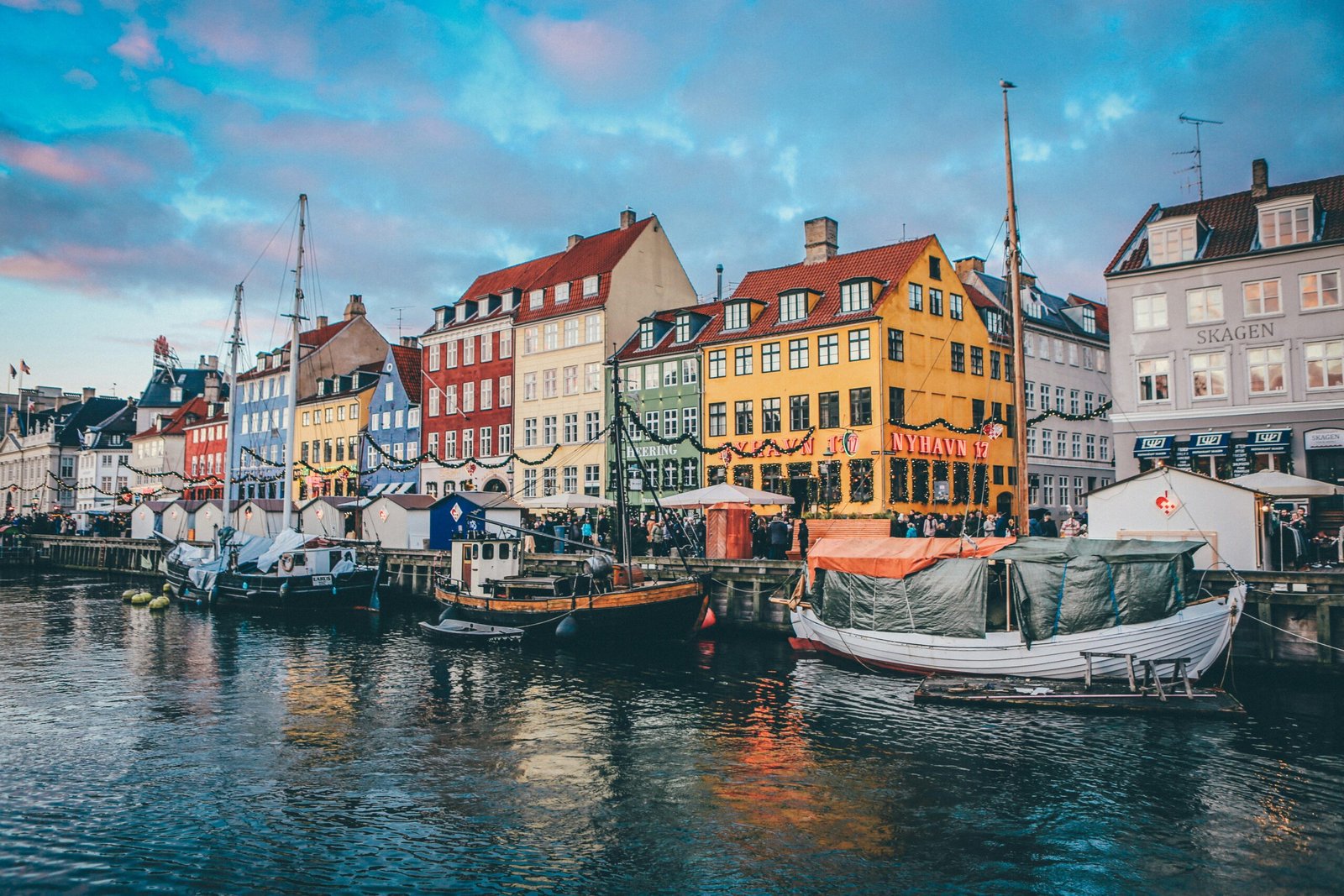Introduction
Welcome to Denmark! This beautiful Scandinavian country, located in Northern Europe, offers a unique blend of rich history, stunning landscapes, and a high standard of living. Whether you’re planning a vacation, looking to relocate, or considering business opportunities, Denmark has something to offer everyone.
Location and Surface Area
Denmark is situated in Northern Europe, bordered by Germany to the south and Sweden to the east. It consists of the Jutland Peninsula and over 400 islands, with a total land area of approximately 42,924 square kilometers. The country’s coastline stretches for more than 7,300 kilometers, providing breathtaking views of the Baltic and North Seas.
Climate
Denmark experiences a temperate maritime climate, characterized by mild summers and cool winters. The average temperature ranges from 0°C (32°F) in winter to 20°C (68°F) in summer. The weather can be changeable, so it’s always a good idea to pack layers and be prepared for occasional rain showers.
Fauna and Flora
Denmark’s diverse natural landscapes are home to a variety of flora and fauna. Forests, heathlands, and wetlands provide habitats for species such as deer, foxes, hares, and a wide range of bird species. The countryside is also adorned with colorful wildflowers, including the iconic Danish national flower, the marguerite daisy.
Attractions
Denmark offers a wealth of attractions for visitors to explore. From the historic charm of Copenhagen’s Nyhavn waterfront to the fairy-tale-like castles of Kronborg and Frederiksborg, there is no shortage of cultural and architectural wonders. Nature enthusiasts will be captivated by the stunning cliffs of Møns Klint and the picturesque landscapes of the Danish Riviera.
Population
Denmark has a population of approximately 5.8 million people. The majority of the population is Danish, but the country also embraces cultural diversity, with a growing international community. Danish society is known for its inclusiveness and egalitarian values, making it a welcoming place for people from all walks of life.
Currency
The official currency of Denmark is the Danish Krone (DKK). It is advisable to have some local currency on hand for smaller establishments, although credit and debit cards are widely accepted throughout the country. ATMs are readily available in cities and towns, making it convenient to withdraw cash if needed.
Visa
Denmark is a member of the Schengen Agreement, which allows visitors from certain countries to enter for tourism or business purposes without a visa for up to 90 days. However, it’s essential to check the specific visa requirements based on your nationality before traveling. For longer stays or other purposes, it may be necessary to apply for a visa in advance.
Official Languages
The official language of Denmark is Danish. However, English is widely spoken and understood, especially in tourist areas, major cities, and among the younger population. You’ll find that most signs, menus, and information are available in both Danish and English, making it easy to navigate and communicate during your stay.
Culture and Customs
Denmark has a rich cultural heritage, with a focus on equality, sustainability, and quality of life. Danes value a healthy work-life balance and prioritize family and leisure time. Hygge, a Danish concept of coziness and contentment, is highly valued and can be experienced in the country’s numerous cafes, restaurants, and cozy corners.
Hospitality
Danes are known for their warm and friendly hospitality. You’ll find that locals are generally approachable, helpful, and open-minded. Don’t hesitate to strike up a conversation or ask for recommendations – Danes are often happy to share their insights and tips to make your visit more enjoyable.
Main Cities
Copenhagen, the capital city, is a vibrant metropolis with a mix of modern architecture and historic landmarks. Aarhus, Denmark’s second-largest city, offers a lively cultural scene and a charming old town. Other notable cities include Odense, birthplace of renowned author Hans Christian Andersen, and Aalborg, known for its Viking heritage.
Airports and Airlines
Denmark is well-connected to the rest of the world through its international airports. Copenhagen Airport (CPH) is the largest and busiest airport in the country, serving as a major hub for both domestic and international flights. Other airports, such as Billund Airport (BLL) and Aarhus Airport (AAR), provide convenient access to different regions of Denmark.
Conclusion
Denmark offers a wealth of opportunities for visitors, residents, and business professionals alike. With its stunning landscapes, rich cultural heritage, and friendly atmosphere, Denmark is a country that leaves a lasting impression. Whether you’re exploring the historic streets of Copenhagen, enjoying the tranquility of the countryside, or engaging in business ventures, Denmark promises an unforgettable experience.

